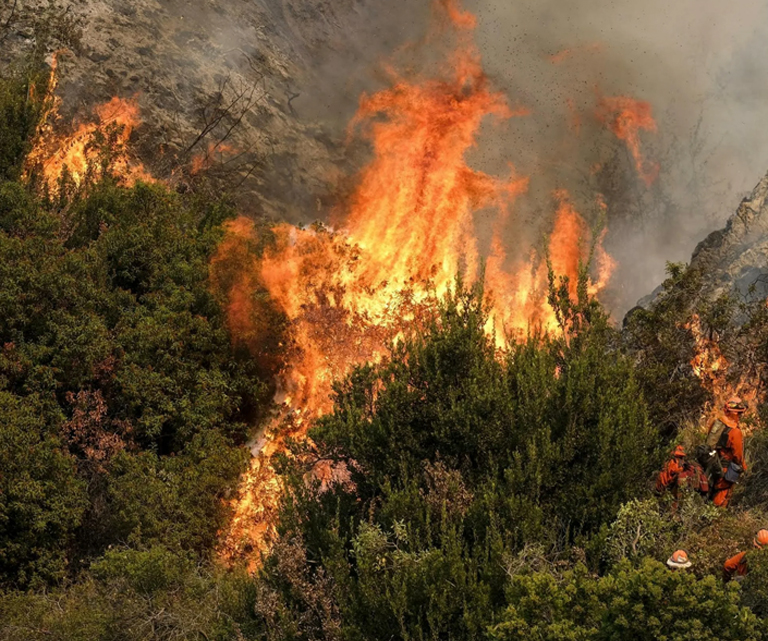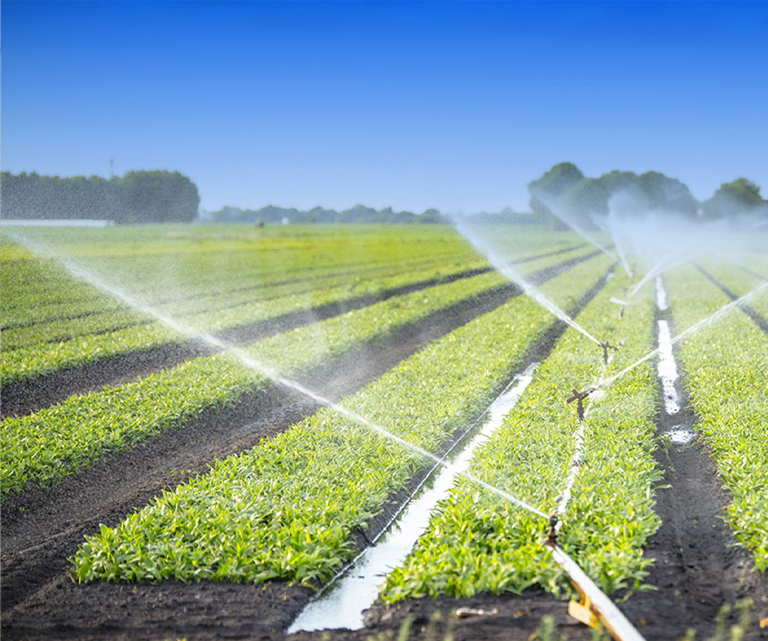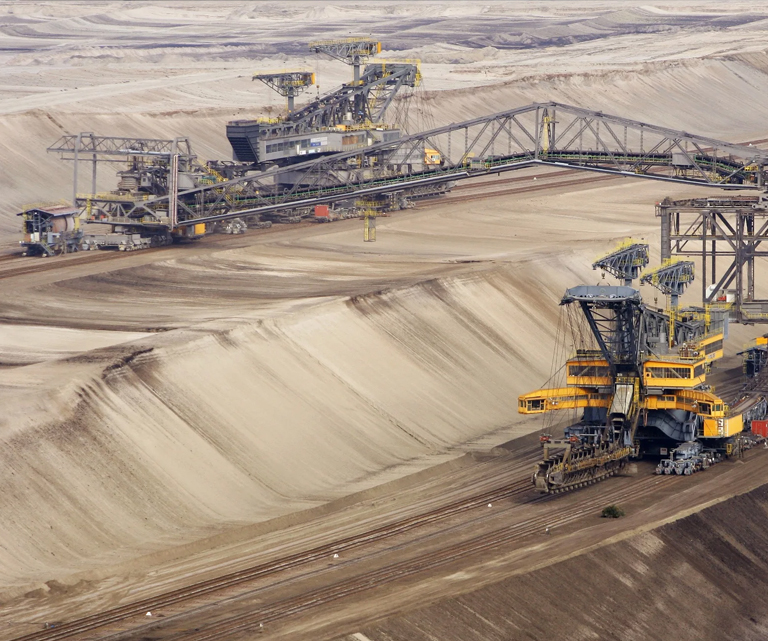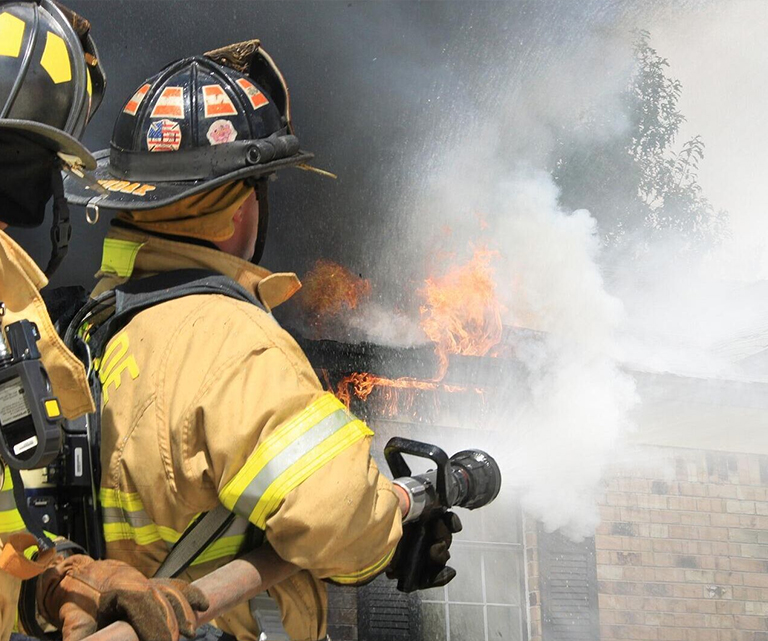Light weight, good elasticity, low resistance to water flow, easy to coil.
Designed for the harsh outdoors, the heavy-duty natural rubber lay-flat hose is weatherproof and abrasion-resistant. Ideal for agricultural, construction and industrial applications, it remains flexible in extreme temperatures and resists cracking, UV damage and abrasion. The lightweight, kink-resistant design ensures easy storage and effortless water transfer. This durable hose is ideal for irrigation, drainage and firefighting.

Forestry Fire Protection

Agricultural Fire Protection

Industrial Fire Protection

Municipal Fire Protection
Strong wear resistance, oil resistance, acid and alkali resistance, corrosion resistance, strong adhesion, cold resistance, small water flow resistance.
| Pressure Required | |||||||
| Caliber | Work Pressure | Burst Pressure | |||||
| (Inch/mm) | (Bar) | (Mpa) | (Psi) | (Bar) | (Mpa) | (Psi) | |
| 1" | 25 | 13-25 | 1.3-2.5 | 190-365 | 39-75 | 3.9-7.5 | 570-1090 |
| 1-1/2" | 38 | 8-25 | 0.8-2.5 | 120-365 | 24-75 | 2.4-7.5 | 350-1090 |
| 2" | 52 | 8-25 | 0.8-2.5 | 120-365 | 24-75 | 2.4-7.5 | 350-1090 |
| 2-1/2" | 64 | 8-25 | 0.8-2.5 | 120-365 | 24-75 | 2.4-7.5 | 350-1090 |
| 3" | 75 | 8-25 | 0.8-2.5 | 120-365 | 24-75 | 2.4-7.5 | 350-1090 |
| 4" | 102 | 8-25 | 0.8-1.6 | 120-235 | 24-48 | 2.4-7.5 | 350-700 |
| 5" | 127 | 8-25 | 0.8-1.3 | 120-190 | 24-39 | 2.4-7.5 | 350-570 |
| 6" | 152 | 8-25 | 0.8-1.3 | 120-190 | 24-39 | 2.4-7.5 | 350-570 |
In the demanding sector of municipal fire protection, equipment is frequently exposed to environmental stressors that can compromise structural integrity. Among these, ozone cracking and ultraviolet (UV) degradation are the most significant...
READ MOREIn the high-stakes environment of mining dewatering, the durability of fluid transfer systems is non-negotiable. Engineers and procurement officers often face the critical choice between traditional Nitrile rubber and modern Thermoplastic P...
READ MOREIn the high-stakes field of municipal and industrial firefighting, the mechanical durability of water delivery systems is paramount. Engineers and procurement officers often debate the merits of a Synthetic Rubber Fire Hose versus tradition...
READ MOREThe purity, impurity content, plasticity and other indicators of natural rubber all affect the molding effect of the final lining. With years of experience in the field of fire equipment production, Jun'an Fire Technology strictly controls the source and quality of natural rubber and selects natural rubber raw materials with less impurities, high purity and plasticity that meet the requirements. Before putting natural rubber into production, it is also necessary to pretreat it, including steps such as cleaning and plasticizing. Cleaning can remove impurities attached to the surface, and plasticizing can improve the plasticity and fluidity of natural rubber, making it easier to distribute evenly during subsequent processing, thus laying the foundation for the production of linings with uniform thickness.
The professional team accurately controls the quality and addition ratio of various additives used to match natural rubber, such as vulcanizers, accelerators, fillers, etc. The amount of different additives added and the degree of mixing uniformity will change the physical and chemical properties and processing performance of natural rubber. With the help of a professional team to accurately weigh additives and use advanced mixing equipment and processes to ensure that the additives are evenly dispersed in natural rubber. Avoid inconsistent shrinkage of natural rubber during the molding process due to excessive or low local additive content, which in turn causes uneven lining thickness, and continue the company's tradition of strictly controlling quality in material supply and material selection.
The mold is an important tool for determining the shape and thickness of the natural rubber lining, and its design and manufacturing accuracy have a direct impact on the uniformity and stability of the thickness. With modern and advanced production equipment and professional management talents, during the mold design stage, relying on a professional team, the size and shape of the mold are accurately calculated according to the specifications of the flat hose and the lining thickness requirements. Strictly control the surface roughness, dimensional tolerance and other parameters of the mold inner wall within a very small range. Low surface roughness ensures that the natural rubber lining fits well with the inner wall of the mold. Appropriate dimensional tolerance ensures that the lining is consistent in the molding space in the mold, avoiding fluctuations in the lining thickness due to mold size errors.
During the mold manufacturing process, with advanced production equipment, CNC machining centers are used to perform milling, grinding and other processing operations on the mold to accurately control the dimensional accuracy and surface quality of the mold. After the mold is manufactured, professional management personnel lead the team to conduct strict inspection and debugging, and ensure that the mold meets the design requirements by measuring the key dimensions of the mold and checking the quality of the inner wall surface. Only molds that have passed the inspection will be put into the production process of natural rubber linings to provide reliable guarantee for the uniform and stable thickness of the linings. This strict requirement for molds is also one of the reasons why the fire hoses and other products produced can fully absorb the advantages of similar products at home and abroad.
In the processing of natural rubber linings, the molding process is the core link that affects the uniformity and stability of thickness. Common molding processes include extrusion molding and injection molding, which rely on professional teams and advanced equipment to accurately control various parameters. During extrusion molding, the screw speed, extrusion temperature, and traction speed are strictly controlled. According to the characteristics of natural rubber and product requirements, the optimal process parameters are determined through a large number of tests and optimizations to ensure that the thickness of the extruded natural rubber lining is consistent; during injection molding, the injection pressure, injection speed, and holding time are accurately controlled, and these parameters are accurately adjusted to make the natural rubber evenly distributed during the lining molding process to ensure the stability of the thickness. In the production of fire hoses and related products, it is through such precise process control that natural rubber linings can perform well in various products.
Vulcanization process is also an important link in the processing process. Professional technicians formulate reasonable vulcanization process curves according to the formula of natural rubber and the characteristics of the mold, and strictly control the temperature and time in accordance with the process requirements during the vulcanization process. Avoid excessive vulcanization, increased hardness, decreased elasticity and local deformation of natural rubber due to too high vulcanization temperature or too long time, or insufficient vulcanization, insufficient lining strength and wear resistance and uneven internal structure due to too low vulcanization temperature and too short time, to ensure that the natural rubber lining has uniform thickness and stable performance after vulcanization. This strict control of the vulcanization process enables the natural rubber lining produced in products such as fire hoses to adapt to complex use environments and ensure product quality.
Quality inspection and process monitoring are important means to ensure the uniformity and stability of the thickness of the natural rubber lining. During the production process, multiple inspection points are set up, and non-contact laser thickness gauges, ultrasonic thickness gauges and other advanced equipment are used to monitor the thickness of the natural rubber lining in real time. The inspection data is compared with the set standard thickness range. Once the thickness deviation is found to exceed the allowable range, the production process parameters are adjusted immediately using professional knowledge and advanced equipment to correct the deviation in time to ensure that the thickness of the lining produced in the subsequent production meets the requirements. This real-time monitoring method ensures the quality stability of the natural rubber lined flat hose and related products produced.
In addition to real-time online inspection, the natural rubber lining produced is also sampled and inspected regularly. The sampled products are subjected to comprehensive performance tests, including thickness uniformity test, tensile strength test, hardness test, etc., to evaluate the overall quality of the product. If uneven thickness is found in the sampling test, the professional team will conduct a retrospective analysis of the entire production process to find the causes of problems such as raw material batch differences, mold wear, and process parameter fluctuations, and take targeted measures to improve and prevent similar problems from happening again. It is through such a rigorous quality inspection process that the high quality of products such as fire hoses is guaranteed.
Establish a complete production process monitoring system to collect and analyze information such as the operating status of production equipment, changes in process parameters, and consumption of raw materials in real time. Through comprehensive analysis of these data, potential problems such as equipment failure hazards and abnormal trends in process parameters can be discovered in advance, and preventive measures can be taken in a timely manner to avoid uneven thickness of natural rubber linings due to equipment failure or process fluctuations, so as to achieve comprehensive and effective control of the production process and ensure the uniformity and stability of the thickness of natural rubber linings. With such a production process monitoring system, the production process is continuously optimized to provide the market with higher-performance fire hoses, agricultural hoses and other products.
During the production process of Natural Rubber Lined Layflat Hose, ensuring the uniformity and stability of the thickness of the natural rubber lining requires comprehensive control from multiple aspects such as raw materials, molds, processing technology, and quality inspection. With many years of experience in the field of fire-fighting equipment production, modern advanced equipment, and a team of professional talents, we strictly control every link, continuously optimize the production process and management process, and are committed to producing high-quality, uniformly thick and stable natural rubber lined flat hoses to meet the market demand for high-performance hose products. It also provides reliable product guarantees for firefighting, agriculture and other fields, and continues its outstanding performance in the field of fire-fighting equipment and emergency rescue equipment production.